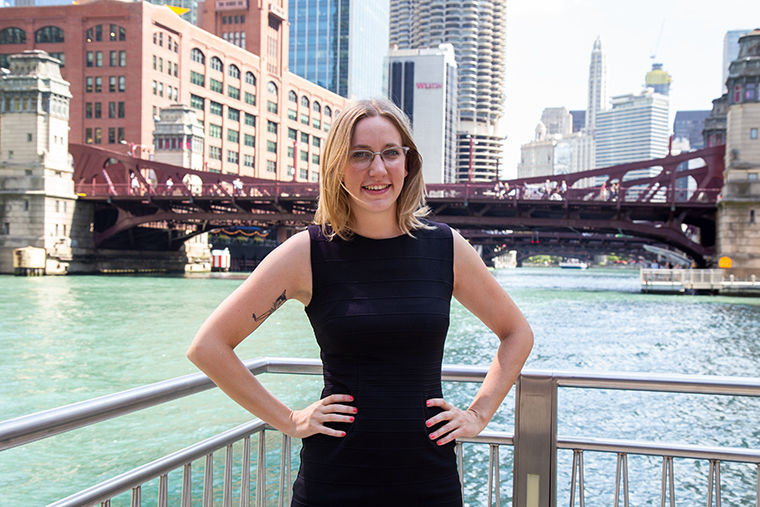Columbia alumna aims to become ward’s first female alderman
September 10, 2018
At 16 years old, Maggie O’Keefe visited Chicago for the first time while playing Glinda in a small-time production of “The Wizard of Oz.” During that visit, she decided Chicago would be her home.
O’Keefe returned to the city two years later to attend Columbia, where she earned her bachelor’s degree in theater in 2011. While at Columbia, she registered to vote, and in 2008, voted for the first time for President Barack Obama.
Now, she’s running for alderman of the 40th Ward. If elected in February 2019, O’Keefe will become the ward’s first female alderman.
“The political world is one [in] need of more female voices,” said Wendi Weber, assistant professor of Instruction in the Theatre Department and O’Keefe’s former professor.
O’Keefe could replace 35-year incumbent Alderman Patrick O’Connor (40th Ward), nicknamed “City Hall Santa” by news outlets following a 1983 investigation into nepotism after hiring relatives.
O’Connor did not respond to requests for comment as of press time.
“[O’Connor has] aged out of being the most authentic representation of the ward,” O’Keefe said. “O’Connor once was that, no doubt, but the ward has changed during his reign as alderman, and he has not changed with them.”
O’Keefe, who collected the required amount of petition signatures within the first week of announcing her candidacy, said she decided to run after the 2016 presidential election.
“I woke up the day after the election and I said, ‘I did not do enough,’” O’Keefe said.
At the top of O’Keefe’s agenda is business development and affordable housing for her ward. O’Keefe said she plans to take a page from Alderman Harry Osterman’s (48th Ward) playbook and show developers the opportunities the 40th Ward provides for business.
“The 40th Ward needs somebody who will keep my rent prices down,” said Shanna Shrum, an artist and 40th Ward resident.
Shrum added that affordable housing is important to bringing diversity to the ward.
“Diversity is what makes people better humans—to understand a variety of experiences, so you are not in this tunnel-vision and making choices based on what serves you best, but what serves the collective,” Shrum said.
O’Keefe said her own mother had to commute four hours every day to a minimum wage job at O’Hare International Airport before she moved to a studio apartment closer to O’Keefe, for which she spends over half of her monthly paycheck. “That is wrong, and it is unsustainable,” she said. “I know she is not the only one going through that.”
With a history of working to get youth involved in politics with numerous voter registration initiatives, O’Keefe said she is passionate about getting millennials involved in the democratic process.
“Anytime I go into something, I am 150 percent,” O’Keefe said. “If it was my band, I was 150 percent in; if it was starting my small business, [I was] 150 percent. I go for it, and I don’t look back.”








